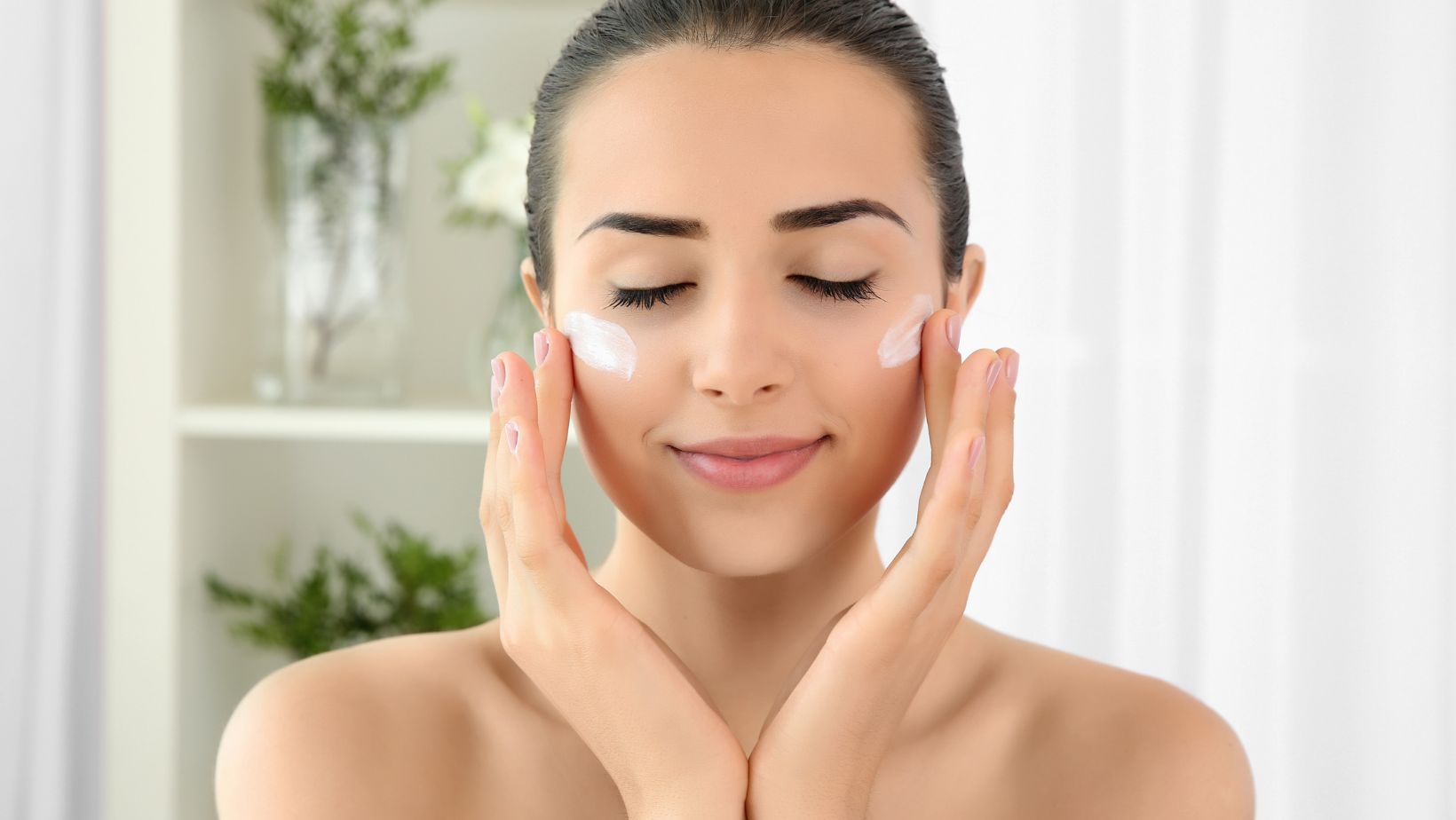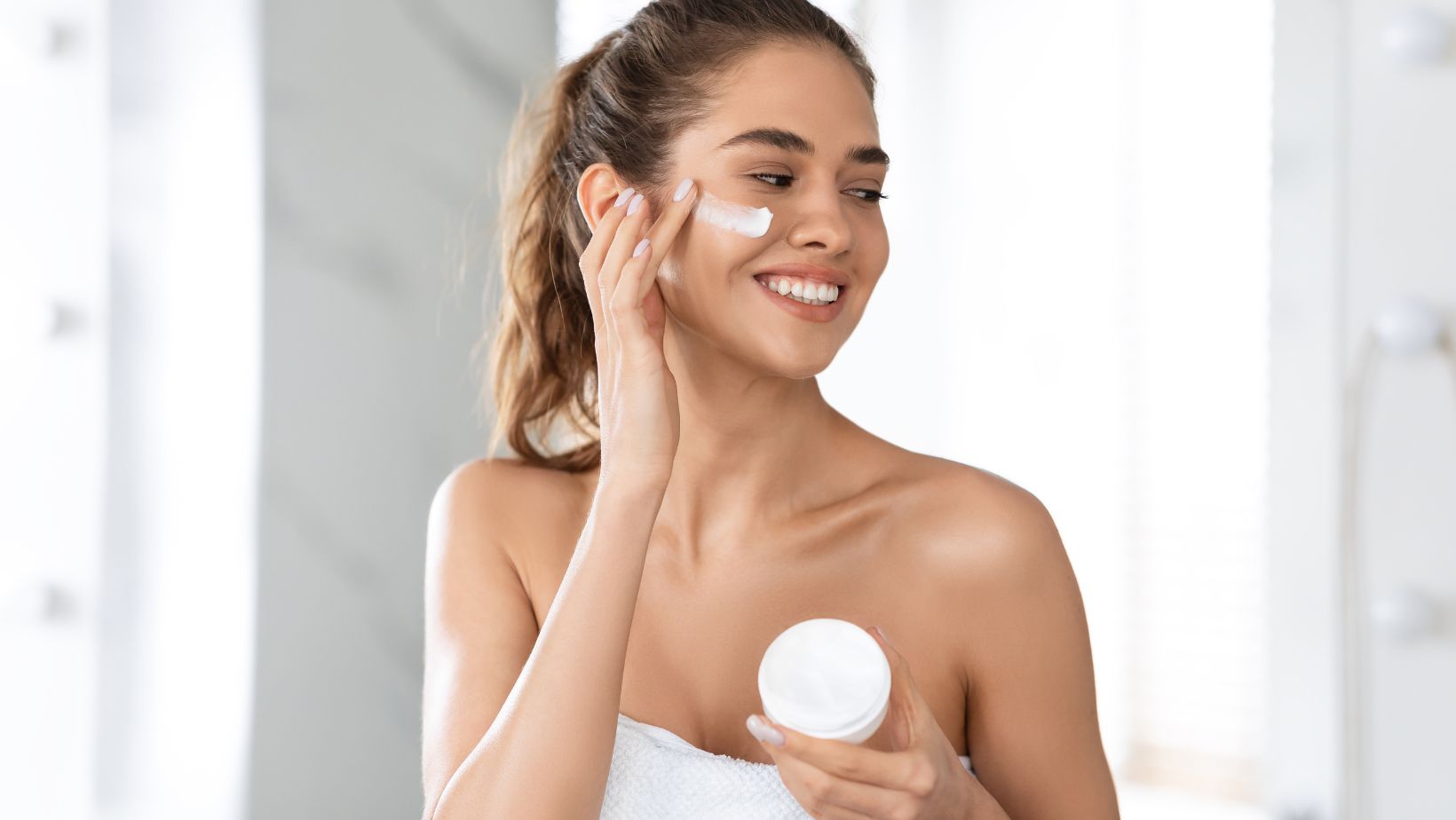
If you have sensitive skin, finding the right facial moisturizer can be challenging. Your skin may react to certain ingredients, leaving you with redness, irritation, or discomfort. Therefore, it’s essential to select a moisturizer that’s gentle yet effective, designed to nourish and protect your delicate skin while avoiding unwanted reactions.
When choosing a facial moisturizer for sensitive skin, understanding your skin’s unique needs is crucial. It’s not just about picking a product labeled for sensitive skin; it’s about recognizing which ingredients work best for you and which to avoid. Products with too many additives, fragrances, or harsh chemicals can be detrimental, so look for simplicity and skin-friendly formulas.
Proper application of moisturizer can enhance its effectiveness, especially for sensitive skin. Applying it in a manner that doesn’t irritate your skin further is as important as the moisturizer you choose. This approach, coupled with additional skincare considerations and answers to common questions, will ensure your sensitive skin stays hydrated and healthy without adverse effects.
Key Takeaways
- Selecting a moisturizer entails identifying non-irritating, skin-compatible ingredients.
- The right application technique is crucial to avoid exacerbating sensitive skin.
- Consider a moisturizer’s formulation and additional skincare habits for the best results.
Understanding Sensitive Skin
Sensitive skin often reacts negatively to environmental factors or products, leading to irritation and discomfort. The key to managing this condition is recognizing what triggers a reaction and understanding the protective role of your skin barrier.
Identifying Common Triggers
Your sensitive skin may react differently to various triggers, which can include skincare ingredients, fragrances, dyes, and environmental stressors such as pollution and extreme temperatures. These reactions can manifest as redness, dryness, or itching. To mitigate discomfort, consider maintaining a diary to track these triggers. Here’s a quick reference list of potential irritants:
- Skincare Ingredients: Alcohol, alpha-hydroxy acids (AHAs), retinoids
- Environmental Factors: Sun exposure, wind, cold, and heat
- Lifestyle Triggers: Diet, stress, hormonal changes
The Science of the Skin Barrier
Your skin barrier is the outermost layer that protects against pathogens and prevents excessive water loss, essential for maintaining hydration and overall skin health. When your skin barrier is compromised, it can lead to increased sensitivity and conditions like eczema and rosacea. A compromised barrier cannot properly defend against irritants, leading to inflammation and irritation.
To support your skin barrier:
- Use gentle, hydrating cleansers to avoid stripping away natural oils.
- Seek moisturizers with ceramides or hyaluronic acid that strengthen barrier function.
- Consult with a board-certified dermatologist for personalized skin care advice.
Proper care and protection of your skin barrier are fundamental for reducing the risk of sensitive skin reactions and maintaining overall skin health.
Choosing the Right Face Moisturizer
Selecting an appropriate facial moisturizer for sensitive skin is pivotal. The right product can nourish and protect your skin without causing irritation.
Ingredients That Benefit Sensitive Skin
- Hyaluronic Acid Naturally occurs in your skin, providing hydration and helping to retain moisture.
- Ceramides: Essential lipids that reinforce the skin’s barrier and help to keep moisture in.
- Glycerin: Attracts water, thus effectively moisturizing the skin.
- Niacinamide: Helps reduce redness and soothes inflammation.
- Squalane: Offers lightweight hydration and is suitable for even the most delicate skin.
Remember to look for hypoallergenic and non-comedogenic products like CeraVe Moisturizing Cream and La Roche-Posay Toleriane Double Repair Face Moisturizer.
Ingredients to Avoid
Avoid harsh ingredients, which can exacerbate skin sensitivity:
- Fragrance and Dyes: Common irritants that can trigger reactions.
- Alcohols and Sulfates: Can strip the skin of natural oils, leading to dryness and irritation.
- Parabens: While they preserve products, they can also cause skin discomfort for some individuals.
Opt for fragrance-free and oil-free moisturizers to minimize risks of irritation.
Types of Moisturizers for Sensitive Skin
Your skin’s needs can determine the best moisturizer type:

- Ointments: Provide heavy moisture with a greasy feel, best for very dry skin.
- Creams: Less greasy than ointments, suitable for regular use, like Kiehl’s Ultra Facial Cream.
- Lotions: Lighter and good for daytime use; Aveeno Calm + Restore Oat Gel Moisturizer is an example containing colloidal oatmeal, which soothes the skin.
Each formulation can be beneficial depending on your skin’s current condition and the climate you live in.
Application Tips for Enhanced Effectiveness
The correct application of facial moisturizer is crucial to maximize benefits for sensitive skin. This involves using the right techniques and integrating the product into your skincare routine effectively.
Proper Application Techniques
- Start by cleansing your face with a gentle cleanser to remove dirt and excess oils.
- Apply any prescribed treatment products, such as serum or face moisturizer for sensitive skin, gently patting onto the skin rather than rubbing vigorously, which can cause irritation.
- Use a dime-sized amount of moisturizer. Dot it onto your forehead, cheeks, nose, and chin; then, softly massage it in upward strokes to encourage proper absorption and blood circulation.
- Pay special attention to areas prone to dry skin. Apply a slightly thicker layer of moisturizer if required to ensure adequate hydration without causing congestion.
- Finish your routine with a broad-spectrum sunscreen during the day to protect sensitive skin from harmful UV rays.
Incorporating Moisturizer into Your Skincare Routine
-
Morning Routine:
- Use a gentle cleanser.
- Apply a light hydrating serum if your skin feels particularly dry.
- Smooth on a non-irritating face moisturizer for sensitive skin, like Vanicream or Olay.
- Always top with sunscreen, regardless of the weather.
-
Evening Routine:
- Begin with a cleanser to remove makeup and pollutants.
- If you use a toner, ensure it’s alcohol-free to avoid drying out your skin.
- Apply any specialized treatments like retinoids if you use them at night.
- Lock in moisture with a suitable night cream; richer formulations may benefit drier skin types.
- Finish with an eye cream to target the delicate area around your eyes.
Always consult guidelines from trusted organizations such as the American Academy of Dermatology when uncertain about products or methods suitable for sensitive skin.
Additional Skincare Considerations
When choosing a moisturizer for sensitive skin, it’s essential to consider environmental protection and a holistic approach to ensure your skin remains healthy and resilient.
Protecting Against Environmental Damage
Your sensitive skin is constantly exposed to external factors that can lead to dryness, irritation, and damage. Here’s how you can shield it effectively:
Sunscreen: Use a daily moisturizer with SPF to protect against UVA/UVB rays that cause premature aging and hyperpigmentation. Look for products with a physical sunscreen component for minimal irritation.
Climate Considerations: Adjust your skincare routine based on climate conditions. In cold, windy weather, opt for the best-repairing moisturizer to combat dryness. For humid climates, the best gel moisturizer can provide hydration without contributing to oiliness.
Environmental Factors: Use a hypoallergenic moisturizer tested for pollutants and allergens, preferably with the National Eczema Association Seal of Acceptance, to minimize the risk of breakouts and calm red, irritated skin.
Embracing a Holistic Skincare Approach
Holistic skincare goes beyond using a single product; it involves understanding the composition of what’s applied to your skin and how it works synergistically.
Ingredients Matter: Seek out alcohol-free products with beneficial additives like peptides for anti-aging, aloe vera, and vitamin E for soothing, as well as emollients for texture improvement. If you have sensitive skin, look for three essential ceramides to maintain skin hydration and barrier function.

Daily Regimen: Your skincare routine should include a gentle, allergy-tested cleanser, followed by an unscented, hypoallergenic moisturizer to avoid stinging or irritation. For best results, select the best drugstore moisturizer for sensitive skin that’s also suitable for both men and women, ensuring broad utility and cost-effectiveness.
Skin’s Needs: Always respond to your skin’s needs by avoiding products with ingredients that cause sensitivity, such as beta-hydroxy acids and salicylic acid. Instead, soy-based products that are proven gentle for maintaining even texture and reducing the likelihood of sensitivity reactions should be used.
Frequently Asked Questions
Choosing the right facial moisturizer for sensitive skin can be challenging. These FAQs provide targeted advice to maintain healthy, hydrated skin while avoiding irritation.
How can I determine the right facial moisturizer for my sensitive skin?
To identify the best moisturizer, look for products labeled as hypoallergenic and non-comedogenic. Conduct a patch test by applying a small amount on your inner forearm for several days to check for any adverse reactions.
Are there specific ingredients to avoid in moisturizers for sensitive skin?
Yes, avoid ingredients such as alcohol, fragrances, and parabens, which can irritate sensitive skin. Also, be cautious of essential oils and synthetic dyes, which might lead to discomfort or allergic reactions.
What are the benefits of using a moisturizer every day on sensitive skin?
Regular use of a suitable moisturizer can help maintain your skin’s hydration levels, protect the skin barrier from environmental stressors, and reduce the risk of irritation and dryness.
Is it better to pat or rub a moisturizer on sensitive skin?
You should gently pat moisturizer on your skin to minimize the risk of irritation. Rubbing can tug at the skin, potentially causing redness or inflammation.
At what point in my skincare routine should I apply moisturizer to my sensitive skin?
Apply your moisturizer after cleansing and any serums or treatments, but before sunscreen in the morning. This helps lock in moisture and the benefits of other skincare products.
How should I modify my moisturizing routine if I have both sensitive and oily skin?
Look for lightweight, oil-free moisturizers to keep your skin hydrated without clogging pores. Apply a small amount and increase as necessary, focusing on drier areas and avoiding excess application on oily zones.














